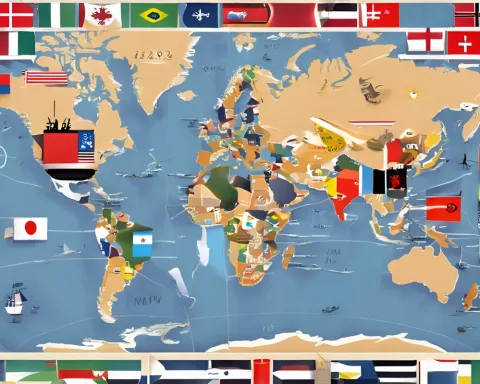Woolworths SA is leading the shift towards cashless transactions in South Africa, driven by innovation and consumer convenience. However, this has sparked a debate around societal inclusivity, with supporters highlighting increased security and efficiency, while detractors raise concerns about exclusion. As the nation considers the implications, it’s important to strike a balance between innovation and inclusivity, ensuring that the benefits of a cashless society are accessible to all. The future of cashless transactions in South Africa remains uncertain, but careful consideration and collaboration can lead to a balanced and equitable outcome.
The retail industry in South Africa is currently undergoing a significant transformation, with Woolworths SA taking the lead in transitioning towards cashless transactions. This move is in line with the global trend of digitizing customer transactions, driven by the retailer’s commitment to innovation and consumer convenience. However, this shift has sparked a heated public discussion around the potential implications for societal inclusivity.
The Debate Around Cashless Transactions
The digital realm, particularly social media, has become a platform for polarizing opinions in South Africa. Supporters of the cashless move highlight benefits such as increased security and operational efficiency. They point to the decrease in cash-in-transit thefts and the potential to streamline operations. However, detractors voice concerns about the exclusion of societal segments, especially those without digital or smart device access.
The legal framework around cash acceptability is complex. In regions such as the EU, businesses can reject cash if they adhere to national rules. However, consumer protection is paramount, as outlined in the PSD2 directive. In South Africa, the adoption of digital payments is already apparent, but Woolworths’ cashless policy has raised equity and inclusivity issues.
Striking a Balance
As the debate around Woolworths’ cashless policy continues, it’s important to ensure that innovation is harmonized with inclusivity. The shift towards a cashless society requires thoughtful contemplation for all consumers. The tweets expressing concerns about a society where options are restricted and the unbanked are sidelined highlight the need for social accountability.
Woolworths’ strategy could be interpreted as a reaction to changing consumer preferences and technological progress. However, it’s essential to ensure that the benefits of a digital economy are accessible to all societal members. South Africa is at a crucial juncture, deliberating on the best way to combine technological advancements with social accountability.
The Future of Cashless Transactions in South Africa
As Woolworths and other retailers lead the way in the transition towards cashless transactions, the nation observes, evaluates, and participates in the discussion. The unfolding of this transformation and its ultimate implications for societal inclusion remain to be seen. Nonetheless, the journey towards a cashless society requires careful consideration and collaboration between stakeholders to ensure a balanced and equitable outcome.
1. What is Woolworths SA’s position on cashless transactions in South Africa?
Woolworths SA is leading the shift towards cashless transactions in South Africa, driven by innovation and consumer convenience.
2. What are the benefits of a cashless society?
Supporters of the cashless move highlight benefits such as increased security and operational efficiency. They point to the decrease in cash-in-transit thefts and the potential to streamline operations.
3. What are the concerns raised by detractors of the cashless move?
Detractors voice concerns about the exclusion of societal segments, especially those without digital or smart device access.
4. How can innovation be harmonized with inclusivity in the shift towards a cashless society?
It’s important to ensure that the benefits of a digital economy are accessible to all societal members. South Africa is at a crucial juncture, deliberating on the best way to combine technological advancements with social accountability.
5. What is the future of cashless transactions in South Africa?
As Woolworths and other retailers lead the way in the transition towards cashless transactions, the nation observes, evaluates, and participates in the discussion. The journey towards a cashless society requires careful consideration and collaboration between stakeholders to ensure a balanced and equitable outcome.









